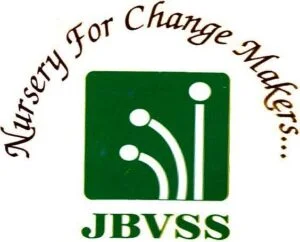I.C.A. – INDIANS FOR COLLECTIVE ACTION
I.C.A. – INDIANS FOR COLLECTIVE ACTION
Introduction: Human trafficking is a significant issue in India, characterized by the illegal trade and exploitation of men, women and children for purposes such as forced labour, sexual exploitation, and organ trade. Victims of human trafficking are often vulnerable individuals and children from marginalized communities, are lured or coerced with false promises, deceived and subjected to physical and psychological abuse. The larger problems faced by human trafficking victims include a lack of legal knowledge and access to justice, social stigmatization and isolation, and barriers to healthcare, education, and employment opportunities, perpetuating their vulnerabilities and hindering their ability to rebuild their lives. JBVSS has been working on human trafficking and child trafficking issues since 2015 with financial aid from several donor organizations. To date, JBVSS has rescued and rehabilitated over 5,000 survivors of
human trafficking and child trafficking from 18 districts of Rajasthan. One of the key learnings from the projects is that the complex nature of human trafficking, intertwining social, political and economic spheres, continues to pose challenges that require additional resources to effectively eradicate it. Despite numerous efforts by JBVSS, other civil society organizations and government departments,
Rajasthan remains among the top 5 states in India with the highest number of human trafficking and child trafficking victims. This programme got started in August 2023 and is still going.
Aim: The project aims to achieve reduced human trafficking and positive social-economic transformation for victims of human trafficking in the state of Rajasthan. Activities Included in Programme: The organization is working on a model where victims of human trafficking and child trafficking are being supported through a structured program consisting of rehabilitation and reintegration, advocacy and engagement with the government ecosystem. JBVSS is engaged in identifying and mobilizing resources to provide immediate relief to victims, including legal aid and protection, trauma counselling, medical assistance, and basic needs provisions. The organization is working to enrol each victim in a 2-year rehabilitation program that includes participation in government rehabilitation schemes, life skills development and creating sustainable financial independence to prevent re-victimization and restore or improve their lives to the pre-victimization period. The rehabilitation program prioritizes eight domains: health, housing, protection, economic empowerment,
education, family relationships, community involvement and trauma recovery. The rehabilitation team conducts regular follow-ups, including monthly family meetings, self-help group (SHG) meetings, and village welfare meetings. The organization is also engaged in activities with the government to increase awareness and action on the issue. These activities include developing a common action plan with local and state departments, training first responders and welfare officers, holding state-level consultancy meetings to set up and
improve welfare policies and distributing information, education, and communication (IEC) materials through government channels.
Outcomes: We expect following outcomes from the programme:
- Increased awareness and prevention in marginalized communities.
- Improved identification and reporting of human trafficking cases by enhancing the capacities of relevant authorities.
- . Creation of a comprehensive support service system for trafficking victims driven by both institutions and the victims’ community.
- Strengthened legal framework and law enforcement through policy reforms, consultancy meetings, action plans, and capacity building.
- Empowered and resilient communities through skill development, enrolment of victims in schools, economic opportunities and increased community participation.
- Enhanced collaboration and cooperation between civil society organizations, government agencies and local community influencers.



